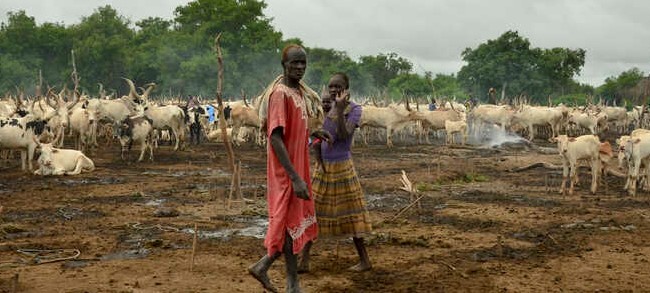Thousands of livestock were dying in Mundri of Western Equatoria State, leaving the owners desperate and calling for urgent intervention.
Jackson Monday has lost 47 cows and fears for the rest of his herd as the outbreak worsens.
“I am at the cattle camp now, and life is so difficult and miserable here. Cattle are dying,” Monday told Radio Tamazuj.
“The cows have running noses, their ears are swollen, they become weak, and then they die. Pregnant cows and fat ones are the most affected.”
Monday suspects the disease could be Kolo (East Coast Fever), which he says affects the ears and leads to death within two days. He is urging authorities to take blood samples for testing.
“If we don’t get medicine soon, the entire Mundri area will lose all its cows,” he warned.
Mundri West County Focal Point Person Simon Arun Waro has been investigating the situation across several counties and reported that 15,000 livestock had already died. He fears that the remaining 60,000 cattle could also succumb to the disease in the coming days.
“We suspect it could be PPR (Peste des Petits Ruminants), a viral disease. The cows show signs of weakness, loss of appetite, and diarrhea. Without intervention, all of them could die,” Waro said.
He emphasized the need for urgent government action, stating: “We have already lost 15,000 livestock, and based on my assessment, the remaining 60,000 cows could die within the coming days if nothing is done. The situation is dire.”
He also explained that the spread of the disease could be linked to poor feeding conditions due to long, dry grass that lacks nutrition.
“The animals eat, but there is no real nutritional value, and they are becoming emaciated.”
Waro has called for immediate government intervention and appealed to partners to step in.
“We don’t have the capacity to control this at the regional level. The national government needs to act quickly to prevent further loss.”
The impact on local communities is severe, as many rely on cattle for their livelihoods.
“We used to sell our cows and earn a living, but now it’s a big problem,” Monday said, reflecting the economic toll of the outbreak.
In many South Sudanese communities cows are mostly used to pay a bride wealth or dowry and as compensation in cases of murder or adultery.




